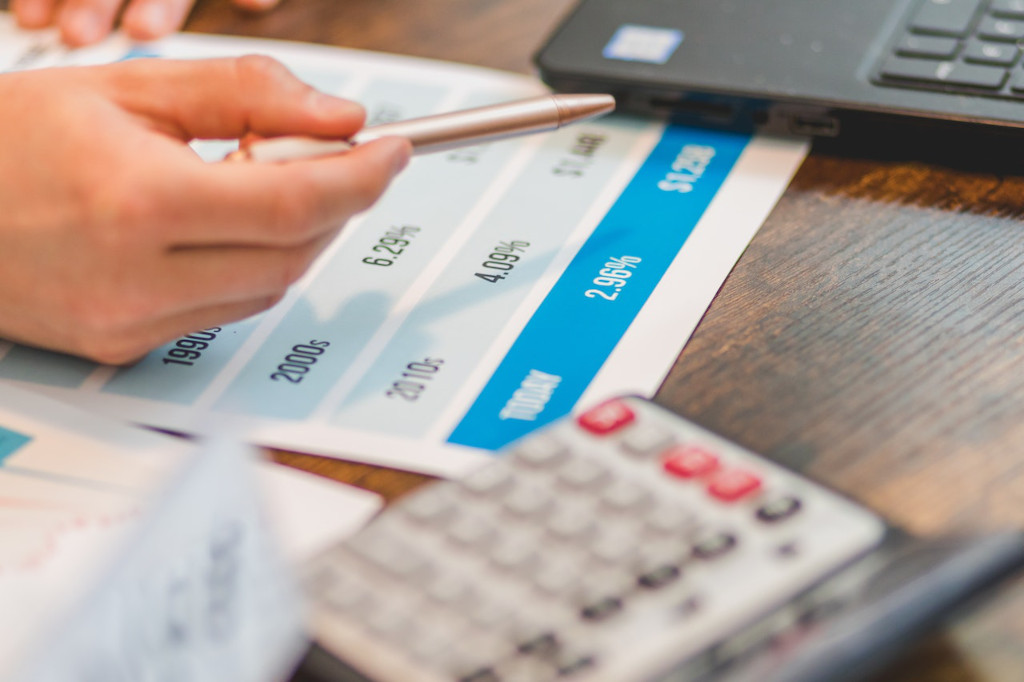Property owners who purchased their properties just on the brink of their financial ability are facing challenging times. However, if you are able to weather the storm of consistent rate increases, things may begin to level off by the following year.
The increase in interest rates that took place today of 75 basis points has the potential to trigger a debt problem for buyers and property owners who made purchases that were on the verge of being unaffordable. As a result of the most recent increase, the lending interest rate in South Africa will go up to 9.75%, coming in from 9% previously.
However, John Loos, a real estate market strategist at FNB Commercial Property Finance, believes that the interest rate hiking cycle may be coming to an end; however, he anticipates that we will reach a peak of 10.25% by the end of the year.
According to Loos, FNB forecasts that interest rates will reach a peak of 10.25 prior to leveling off in the following year. According to Loos, FNB anticipates that inflation will begin to moderate later on in this year, and as a result, “we can expect the South African Reserve Bank to put an end to hiking interest rates.”
The Monetary Policy Committee (MPC) of the South African Reserve Bank recently announced that its members have reached an agreement to “raise the repurchase rate by 75 percentage points to 6.25% per year, with effect from the 23rd of September 2022.”
The Result of This is That the Interest Rate is Now Effectively Back to Where It Was Almost Before the Pandemic
Samuel Seeff, head of the Seeff Property Group, notes that even though the increase was widely anticipated, maintaining stability in the economy and market is now more important than ever. According to him, the declining conditions of the buying market will likely “drive more people into the rental market.”
According to Seeff, provided that there are stock shortfalls in certain regions, we might start noticing rental prices increase, which will be great for the rental market, which has been flat during the last 2 years. This is due to the lack of new construction.
“The Bank now also needs to indicate when the increase cycle will come to a close and when we should anticipate rates to begin heading down again,” he adds.
The Chief executive of the Pam Golding Property group reiterated these thoughts by mentioning that buyers overall are feeling the pressure on household expenditure, with the food and electricity price volatility earlier this year generating an inflationary domino effect across the economic system.
Having said that, the Bank has pointed out the reality that the most significant challenges confronting the regional economy aren’t the existing interest rates and the cost of debt, but it is the ongoing backlogs in infrastructure, such as those in the areas of power generation, transportation, and schooling.
“Lately, the Deputy Governor of the Reserve Bank, proposed that the bank is trying to shift into a more ‘neutral’ interest rate configuration and would be trying to prevent lessening economic growth as much as possible,”
He went on to say that the Monetary Policy Committee is “especially concerned about grounding inflationary expectations” in order to prevent external price shocks, such as recent increases in the cost of food and petrol, from becoming engrained and sifting through to price setting in the wider economy.
“As soon as it becomes evident that rising prices are beginning to ease again, the Bank will be in a position to shift gears and begin increasing interest rates at a more gradual pace,”
Tony Clarke, Managing Director of the Rawson Property Group, believes that “realistically speaking, the SARB is caught between a rock and a hard place right now.” “They are fully aware of the financial pressure that consumers are under and how an increase in interest rates will affect them in the short term; however, they are also fully aware of how much worse things could become if inflation is allowed to spiral out of control.”
According to Clarke, an increase in interest rates is a method that has been tried and tested for controlling outsized inflation. Nevertheless, it typically makes life more difficult before the circumstances begin to improve.
“Homeowners will undoubtedly start experiencing financial difficulties as their bond repayments keep going up, right alongside the rest of their day-to-day expenses.” The road ahead is going to be paved with decisions that are challenging for some. The majority of families have very few remaining luxuries that they can afford to cut back on.
According to Adrian Goslett, provincial director and CEO of RE/MAX of Southern Africa, the effect of these rate increases might not be felt until the following year. This is especially true if interest rates continue to climb during the subsequent few announcements.
Despite the most recent increase in interest rates, there is still an unusually high level of activity in the real estate market. This activity is so intense in many parts of the country that it has created a seller’s market, in which demand significantly outweighs supply.
It’s possible that this is due to the fact that interest rates are indeed significantly lower than they were before the pandemic, which averaged around 10%. It is feasible that the impacts of these increases in interest rates might not be felt by homeowners until after they have had a few months to pay the higher debt installments,” he notes.
According to Seeff, we are starting to see the emergence of a two-paced market as a result of the impact that the hiking cycle is having on the real estate market. On the one hand, there is still a high level of demand, but on the other, buyer hesitation is growing and transactions are taking a significantly longer time.
Seeff argues that the worsening circumstances in the country are not helping the situation, in addition to the skyrocketing interest rate. It’s possible that buyer hesitancy is being compounded by the combination of power outages, poor economic data, and macro events like the crisis in Ukraine.
The increase that took effect today has an immediate impact on homeowners who have variable interest rate debt, and it can add thousands of dollars to their monthly mortgage payment in some cases.
The increase in interest rates is not only bad for people who already own their homes, but it is also bad for people who are looking to buy a home because it will make it more difficult for them to qualify for a mortgage at the higher interest rates because it will increase the amount of money they have to pay each month to buy a house.
Once interest rates were at their historic low during the Covid era, many people took advantage of the opportunity to purchase their first home.
Now, however, because of a string of interest rate hikes that began in November 2021 and continued until today, they have increased by well over 2.75 percentage points, putting pressure on households that bought at the very edge of what they could afford.
According to Seeff, the increase in interest rates will result in an increase in the following costs for a home loan with a term of 20 years at the par value:
- An additional R366 for a bond of R750,000 (repayment incr. from R6 748 to R7 114)
- An additional R439 for a bond of R900,000 (repayment increase from R8 098 to R8 537)
- An additional R488 for a bond of R1,000,000 (repayment incr. from R8 997 to R9 485)
- An additional R732 for a bond of R1 500,000 (repayment increase from R13 496 to R14 228)
- A bond of R2,000,000 with an additional R975 (repayment increase from R17,995 to R18,970)
- A bond of R2,500,000 plus an additional R1,220 (repayment increase from R22,493 to R23,713)





